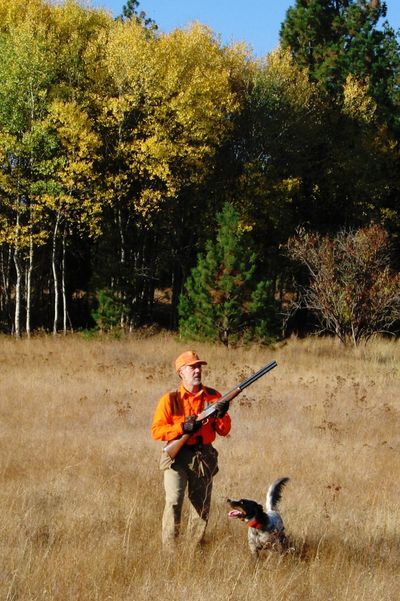Landers: Hunting is serious business

Hunting is the ultimate form of tough love.
Sportsmen donate to habitat conservation and snap photos of fawns with the same fascination they focused on the first steps of their own children.
Then in the fall, they’ll take aim at those critters for the benefit of wildlife management, putting meat in the freezer or a trophy on the wall.
Most hunters love wildlife. If hunting were just a matter of killing, few people would do it.
Years ago, a National Public Radio correspondent accompanied a deer hunter for a story. As they walked through the woods, the hunter noted that he sometimes tries to sneak up on a buck and shoot it on its bed – a difficult task, since bucks don’t just lie down, close their eyes and shut down their senses.
The reporter’s response? Wouldn’t it be more sporting to give the deer a running chance?
No. While hunting is considered a sport, it’s not a game.
The perfect hunt ends with the animal never knowing what hit it. The goal in terms of hunter stealth, and the meal to be served later, is to take the animal before it’s spooked or even alarmed.
“To the sportsman the death of the game is not what interests him; that is not his purpose. What interests him is everything that he had to do to achieve that death – that is, the hunt…,” Spanish philosopher José Ortega y Gasset observed in his often quoted “Meditations on Hunting,” published in 1942.
Nonhunters often counter, “Then why don’t you just hunt with a camera?”
First, wildlife photographers have their own ethical demons to confront involving baiting and wildlife harassment.
But mostly, the notion of catch-and-release hunting falls short, just as video games would fail to sate jet fighter pilots.
“One does not hunt in order to kill,” Ortega wrote. “On the contrary, one kills in order to have hunted. … If one were to present the sportsman with the death of the animal as a gift he would refuse it.”
I don’t need to hunt for food, but I prefer my meat from the wild as much as the gardener who grows his own vegetables. Some trophy hunters might disagree, but from my corner, the benediction of the hunt is in the meal, the ceremony that honors the game and nourishes the next hunt.
Hunters tend to go through five stages in their lifetime, according to researchers from the University of Wisconsin-La Crosse. Their studies in the late 1970s form this widely accepted theory of hunter behavior and development:
• Shooting Stage – Squeezing off rounds is the highlight. Target practice helps take the edge off along with varmint hunting. Blam, blam … this stage is a blast.
• Limiting Out Stage – Skill and perseverance come into play, but a narrow viewpoint on the sport prevails.
• Trophy Stage – Advancing from quantity to a quest for quality, the hunter becomes more selective.
• Method Stage – Adding challenge or intrigue to the hunt, the sportsman might tackle rougher terrain, seek warier quarry or switch from a long-range rifle to a short-range bow or muzzleloader.
• Sportsman Stage – Measuring a hunt by the total experience, not just a singular goal. A hunter in this stage will avoid unethical situations, pass up uncertain shots and agree that “a bad day hunting is better than a good day at work.”
While I wouldn’t endorse the tactics or attitudes of every hunter – and I’d prefer that some hunters advanced more quickly out of the early development stages – sportsmen collectively make huge contributions to the welfare of all wildlife species.
In 1937, during the Great Depression, sportsmen backed the Pittman-Robertson Act, which imposed an 11 percent federal excise tax on guns, ammo and archery gear to fund wildlife habitat conservation.
Through 2012, $8.1 billion had been generated and passed on to state wildlife programs through this act.
Fishing and boating equipment also is taxed under a similar federal program. But efforts have failed to get the rest of the outdoor industry on board with a tax – on, say, backpacks or climbing gear – for protecting wild places.
Sportsmen also pay millions of dollars in annual license fees that finance the bulk of state fish and wildlife management. They buy duck stamps and put up with thick pamphlets of regulations, all for the bottom line: preserving the game.
Even beyond that, motivated by their passion for a particular species, sportsmen donate millions more each year to groups such as Ducks Unlimited and the Rocky Mountain Elk Foundation for additional habitat work.
Wildlife photographers have no similar conservation groups because they lack the passion borne from the hunt, and more specifically, the kill.
Hunting is intensly personal, rewarding and, in a modern world, necessary. It’s serious business – a fact I reflect upon every season, right after the shot.
Contact Rich Landers at (509) 459-5508 or email richl@spokesman.com.